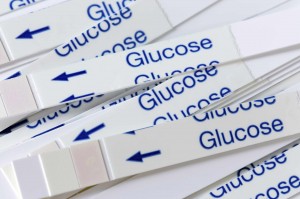-
Weekend Wellness: Take steps to combat prediabetes and prevent its progression
 DEAR MAYO CLINIC: Is it possible to cure prediabetes, or does being diagnosed with it mean you will either always have it or eventually become diabetic?
DEAR MAYO CLINIC: Is it possible to cure prediabetes, or does being diagnosed with it mean you will either always have it or eventually become diabetic?
ANSWER: Having prediabetes does not automatically mean you will go on to develop diabetes. But it is a warning sign. If you do not make any changes, then the risk is high that prediabetes may eventually progress to diabetes. But taking certain steps, such as improving your diet and exercising regularly, can often make a big difference.
Diabetes happens when you have too much sugar, also called glucose, in your blood. Normally when your body digests food, sugar goes into your bloodstream then into your cells where it serves as fuel for those cells. Sugar gets into the cells with the help of the hormone insulin.
When you eat, your pancreas secretes insulin into your bloodstream. As insulin circulates, it acts like a key that allows sugar to enter your cells and lowers the amount of sugar in your blood. In people who have diabetes and prediabetes, this process does not work the way it should. Instead of fueling your cells, sugar builds up in your bloodstream.
Diabetes and prediabetes are determined by a blood test that analyzes how much glucose is in your blood. A normal fasting glucose level ranges between about 70 and 100 milligrams per deciliter. You have diabetes when fasting glucose is consistently above 126 milligrams per deciliter.
The middle ground, between 100 and 126 milligrams per deciliter, is prediabetes. The key number to watch in that range is 110. Research has found that 40 percent of people whose fasting blood sugar stays consistently above 110 go on to develop diabetes over the next ten years.
The exact cause of prediabetes is not known. But excess fat — especially abdominal fat — and inactivity seem to be important factors in the development of prediabetes. Studies have found that diet and exercise are the most effective treatments for combating prediabetes and preventing its progression to diabetes.
For example, one comprehensive study known as the Diabetes Prevention Program studied people who were prediabetic. It split participants into three groups. The first group received medication to prevent diabetes. The second group was advised to eat less and exercise. They were not given specific guidelines for what that should involve, nor did they receive medication. The third group did not receive medication, either. However, they were put on a fixed activity plan in which they exercised for at least 30 minutes, five times a week. That group was also given dietary advice on a monthly basis to help with their eating habits and reduce food intake.
Results showed the third group decreased their risk for diabetes significantly. In fact, it had better results than the group that received medication to prevent diabetes. Indeed, in the group receiving medication, once medication was stopped, they behaved like the group that received no intervention. This implied that the medication did not alter the natural history of prediabetes. Instead, it simply treated diabetes in those participants who developed the disease during the study.
Taking steps to keep prediabetes from progressing to diabetes is of critical importance to your health. Diabetes has a wide range of serious complications. Currently diabetes is the leading cause of blindness in people between the ages of 20 and 74 in the United States. It is also the leading cause of kidney disease in this country and the number one reason that people require lower limb amputations. In addition, diabetes significantly increases your risk for stroke and heart disease.
If you have prediabetes, talk to your doctor. Together you can create a plan to help prevent your condition from getting worse. Exercise, diet and, in some cases, medication along with other lifestyle changes can often be very effective in returning blood sugar levels to a more healthy range and protecting your health into the future. — Adrian Vella, M.D., Endocrinology, Mayo Clinic, Rochester, Minn.







